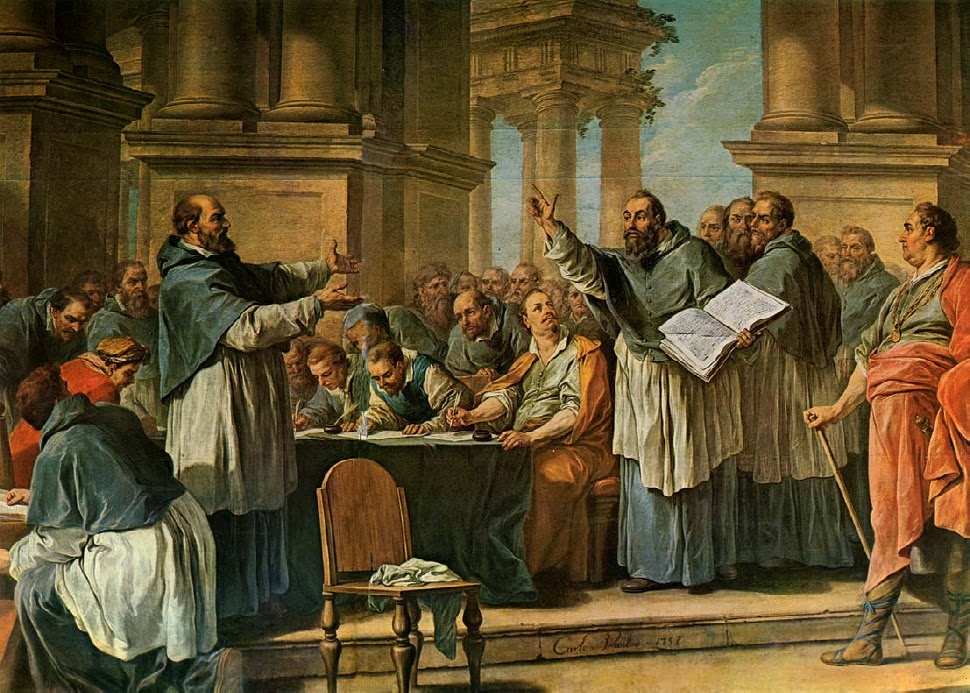As to the first of these observations, at least in my own experience, those who embrace theological rigorism tend to have a very inflated view of their own group, at least those who are sufficiently rigorist as they are, and a very low view of those outside their group, and often even those within their group who they view as insufficiently serious or devoted or correct. It seems to me that this stems from a Pharisaical desire for certainty, which will be discussed more below, and the remedy for this desire is to ensure that one's self is set apart, distinguished, separated from those for whom such certainty is absent. This, it seems to me, has the commensurate effect of leading the rigorist to believe he is more righteous than he really is. The desire to define Orthodoxy not by what we believe, nor even apophatically by what we cannot know, but predominately in opposition to others we deem to be inadequate, ends up putting us in the place of judgement over our brother's perceived failings. And as we know, judgment stems from pride, and pride is mother of all the passions. So rather than ending up in a place that authentically satisfies the rigorist's desire for certainty, we end up in a place that has us committing the greater sin in order to separate ourselves from those who would never judge us in return. Such self-righteousness damages not only our neighbor and the Church, it also damages us.
As to the second observation, it seems to me that this desire for certainty stems from a position of fear before God. Not the healthy fear of God that every Christian should have, but rather a fear-centered Christian life that results from a misunderstanding of Who God is and how God relates to His creation. The Pharisees were not unholy people, at least to the extent externals allow one to claim to be holy. The Pharisees, to the contrary, were the most holy people in terms of law keeping and rule keeping. The Pharisees did not simply build a fence, but like Eve in the Garden, built a fence around the fence. They were not satisfied with "do not eat of the fruit." No, they had to go a step further -- "do not eat of the fruit, nor touch it." In this way, their fear of punishment was allayed by the certainty that they had kept the rules, because the rules they kept were stricter than those God had given them. Our Lord had harsh words for them. They kept the Law, often perfectly, as far as anyone observing could tell. But God said "I desire mercy, not sacrifice." And thus they did not keep the Law in their hearts. Instead, they wielded the Law as a sword against their neighbor, and even against their Savior.
This approach does not produce mature Christians. If I tell you you must do this thing or else, then you will do only the minimum required to assuage me and no more. That is, you will do only that which is needed to get "past the post" and avoid the punishment. Even if the rules are made by setting fences around fences, as the Pharisees did, you still will not do more than required to stay on the correct side of the second fence. Because your goal is not to seek the good, but rather to avoid the punishment. As a former pastor once told me, "those who live by the Law are always looking for loopholes." This is not a proper Christian outlook toward God. God does not desire us to obey rules to avoid punishment. He does not desire to punish us at all. God desires that we enter into His life, encounter Him, and find Him in our neighbor. That is not to say rules are unimportant, or canons ought to be disregarded, or that prayer and fasting disciplines are bad in and of themselves. None of those things is true. Rather, we keep the Law because it is good for us to do so. We forgive because it is good for us. We pray and fast because those things are good for us. We follow the canons because the Church has put them in place for our benefit. But that obedience, that desire to do good and follow the rules, must come first from a place of love and trust in the One Who gave them to us to begin with. We obey because He is good, and just, and merciful, as the Psalmist said, "I follow the thing that good is." We love because He first loved us.
The Christian lives to encounter God. God is not found in fear and despair, nor in self-glorification and self-righteousness. God is found first and foremost on the cross, and through the cross, we find God in our neighbor and our selves. And so we pray not because we fear God will abandon us if we do not, but rather because we desire to encounter Him. We fast and attend services and do good not to avoid His punishment, but to live in His glory. God forgives. He does not need us to keep His rules for His benefit. We need to keep them simply because they are good. Not because the end is worth the means, but because the means are an end in themselves.

Thank you for discussing the heart and purpose of the Christian life.
ReplyDeleteThank you for the kind words!
ReplyDelete